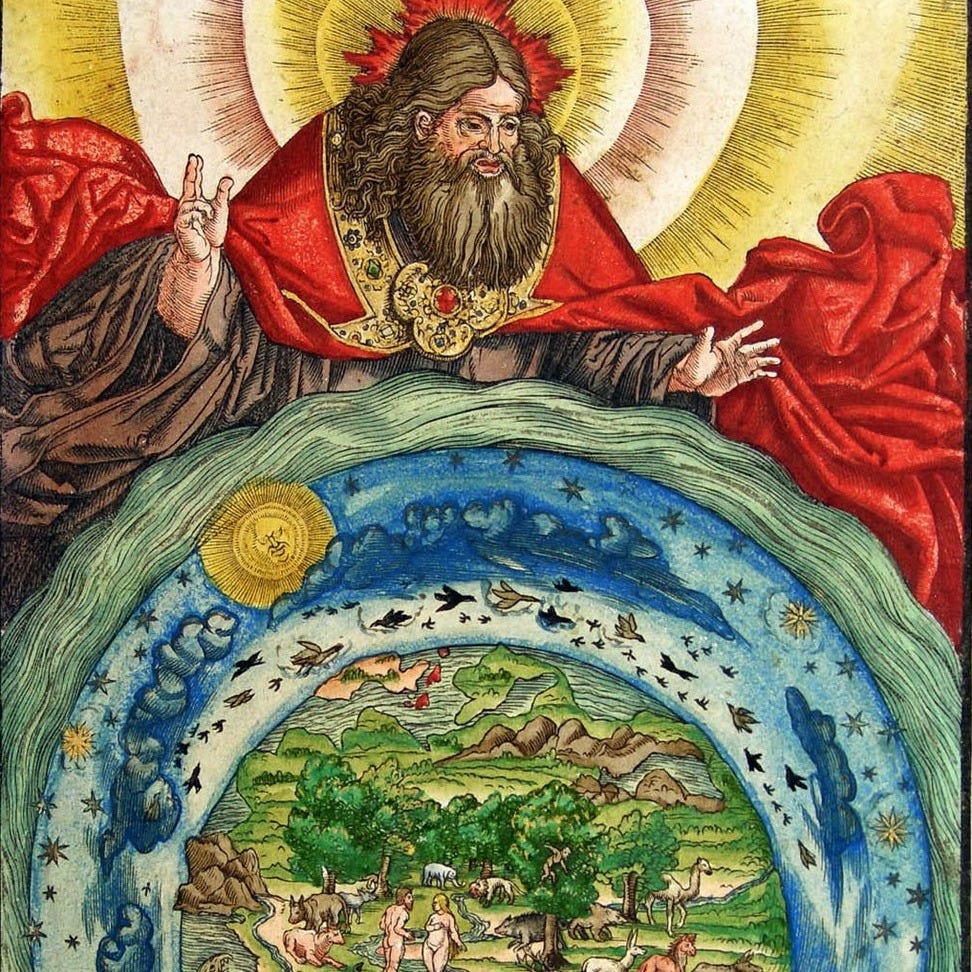Rethinking God as All-Powerful
Can God really do all things?
Can God truly do all things?
When people describe God, they often defer to His power as His primary attribute. To be God is to be all-powerful. You can accomplish whatever you will.
Yet, can God truly do all things? Is God powerful enough to change His mind and no longer offer mankind salvation through Jesus Christ? Is God powerful enough to break His word? Is He powerful enough to command you to sin?
The Christian understanding of God is unique, as it holds that God has a nature. The Power of God is not unbridled, but is rather exercised in accordance with who He is. Yet, what is the nature of God?
The question of the nature of God and His power is an invitation for the soul to ascend; because, the way God exercises His Power is the same way you are meant to exercise yours.
Reminder: this is a teaser of our members-only deep dives.
To support our mission and get our premium content every week, upgrade for a few dollars per month. You’ll get:
New, full-length articles every Tuesday and Friday
The entire archive of members-only essays
Access to our paid subscriber chat room
Knowledge is an Invitation to Love
Christians teach that God made you to know Him, love Him, and serve Him in this world and to be happy with Him in the next. These three movements are presented in order - to know, love, and serve - as knowledge is an antecedent to love; or rather, you cannot love what you do not know. First we know and then we love; and once you love something, you serve it.
As such, you should not see the intellectual side of Christianity as sterile academics nor as something that threatens your faith—rather, knowledge is an invitation to love.
And you seek knowledge of God in order to love Him; and, the more knowledge you have, the more you can love.
Therefore, seeking the nature of God and how it relates to His power and is less like a sterile academic study and more like unfolding a new characteristic of someone you love. Real relationships have layers and blossom like a flower.
How should we speak about God?
If someone asked you to describe God, what would you say? Many would immediately say God is all-powerful (omnipotent) and all-knowing (omniscience). Others may understand that He is also everywhere (omnipresent), and He is eternal—He has no beginning and no end. He is outside of time.
He is also immutable, which means God does not change. But, why would it be problematic if God could change? Well, imagine that I presented you a steak dinner that I told you was perfect, but right before I handed it to you I said “wait” and sprinkled some salt on it. What is the problem? The problem is that the steak cannot be perfect and need the salt. To say something is perfect means it needs nothing added or taken away. In other words, if something is perfect it is also immutable—perfection does not undergo change. As such, we speak of God as being both perfect and immutable.
Yet, God’s attributes call us to a higher understanding. Imagine I told you that little Timmy had no potential when it came to playing baseball. Normally, this would mean that Timmy is terrible at baseball; however, God also has no potential. Why? Because to have potential means you have the possibility of change, Timmy could become a good baseball player if he had potential, but if he has none, then he cannot change into a good player. However, God has no potential because, being perfect, He has fully actualized all possible potential. There is no manner in which God could improve or become better. He has no potential because He is Pure Act—and this is similar to saying he is immutable and perfect.
Contemplating God invites you to even higher beauties.
Think of this statement: God plus Creation equals nothing more than God. In other words, Creation does not add anything to God, as God is perfect and immutable. But, how can this be? Well, God is not Zeus—and what is meant by this is that Zeus and the other Greek gods are all subject to time and creation. Though they are powerful, the Greek gods are still within the created order—they are powerful beings. God, however, is Being-itself. He is the great “I AM,” as He tells Moses out of the burning bush (Ex 3:14). God is transcendent, meaning He is outside both time and the created order; however, God is somehow also imminent, meaning He holds all things in existence. In fact, as St. Augustine notes in his Confessions, God is closer to you than you are to yourself. It is a difficult concept to grasp, but some Christian saints have presented this as the relationship between a mind and an idea. The mind thinks the idea and holds the idea in being, it is both transcendent to the idea but also more intimate to it than it is to itself. It is something to ponder.
But, all of these divine attributes seem to only support God’s infinite power. He creates all things and holds all things in being. What would limit Him?
The question is whether God has a nature by which He exercises this power. Is there a standard by which God exerts His power, and, if so, why would that standard not be greater than God?
The question invites you to understand God in order to mimic Him—for as God exercises His power, so too are you called to exercise yours.




